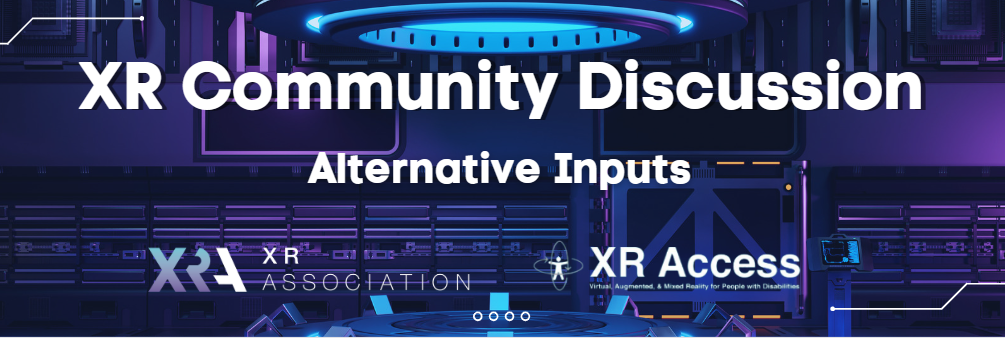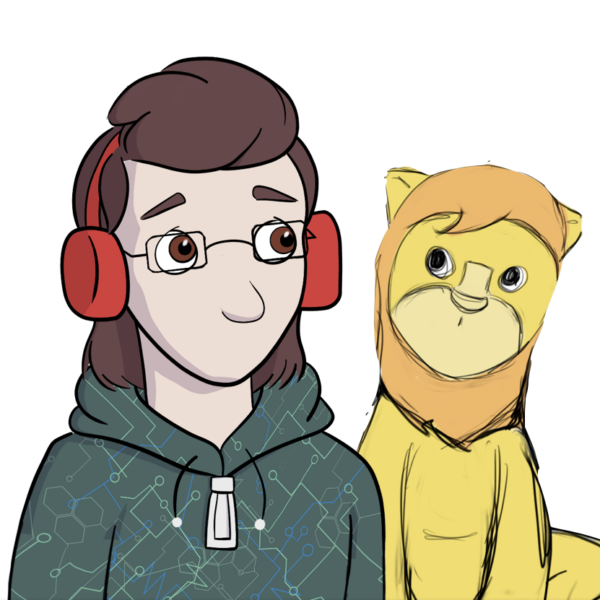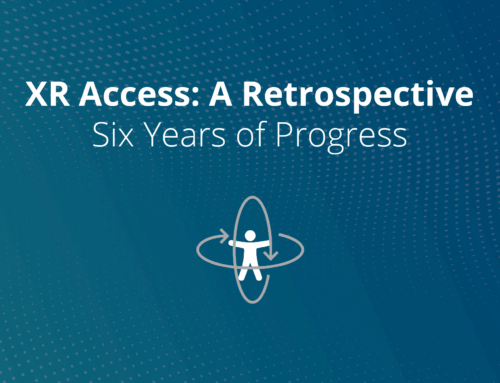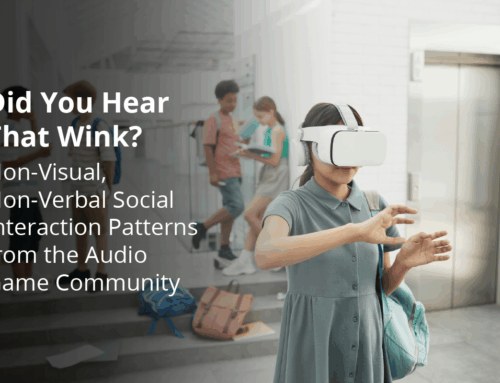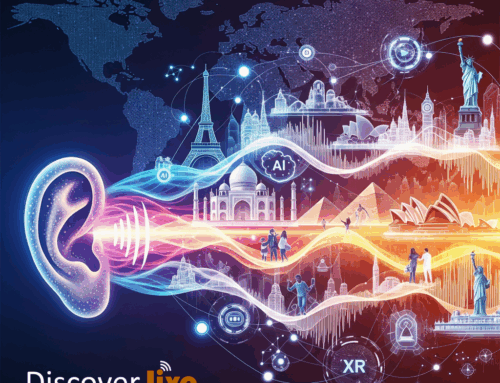May 23, 2024
Join us for a community discussion hosted by XR Access and the XR Association in which you, our esteemed community, can take on some of the biggest challenges in XR accessibility. This time: Alternative Inputs. How can people who have challenges accessing traditional controllers and interaction paradigms interact with VR? How can we ensure all kinds of input devices are compatible with XR devices? What are the best practices for customizing buttons and motion controls?
With featured speakers Jamie + Lion, Mar Gonzalez-Franco, and Rick Tett, join us in paving the path forward for alternative inputs!
If you require accessibility accommodations such as American Sign Language interpretation, please email info@xraccess.org no fewer than 72 hours before the event.
Event Details
Date: May 23, 2024
Time: 11am – 12:30pm PT / 2pm-3:30pm ET
Location: Zoom
Summary
The XR Access and the XR Association hosted a community discussion on May 23, 2024, focusing on the challenges of ensuring the accessibility and functionality of alternative inputs in XR accessibility. It aimed to explore how people with difficulties accessing traditional controllers can interact with VR, ensure compatibility of various input devices with XR devices, and discuss best practices for customizing buttons and motion controls.
The event featured speakers Jamie + Lion, Mar Gonzalez-Franco, and Rick Tett, who shared their insights and experiences in the field of XR accessibility. Jamie + Lion, known for their work on the BBC’s VR Barriers Research, emphasized the importance of understanding and addressing the barriers in VR environments. Rick Tett, the Cofounder/CTO of Glydr, introduced the first high precision foot controller for video games & VR. Mar Gonzalez-Franco, a Research Scientist at Google, discussed different options for locomotion and input in VR.
Key points from the discussion included:
- Challenges in VR Interaction – Many disabled users have challenges holding controllers, pressing buttons, and so on. Some people have used workarounds like Open Track and WalkinVR Driver to supplement their setups, and platforms have started introducing alternatives in the form of voice and gaze selection. Designers should support alternative inputs, and also consider simplified interfaces; for example, moving to a specific location to trigger specific actions requires users to only need to be able to input movement rather than additional controls or menu interfaces.
- Customizing Controls – Button remapping is a standard part of 2D accessibility and should be extended to XR, including remapping from controller buttons to switch controls a la the Xbox Adaptive Controller. However, as many VR games feature 1:1 motion (e.g. swinging your arm to swing a sword), creative customizations may be necessary. Flexibility is a must to ensure that everyone can customize a setup to their needs.
- Compatibility of Input Devices – Platforms should be able to connect via Bluetooth or wired connection to a variety of input devices. Supporting standard controller drivers is a good start, but we should encourage devs to support a variety of direct inputs rather than taking a “walled garden” approach that only allows specific native setups. Experiences should ideally be backwards-compatible, supporting interaction via 6DoF motion, smartphone, keyboard, and more.
The event provided valuable insights into the challenges and potential solutions for improving XR accessibility. It emphasized the importance of understanding and addressing the barriers in VR environments, exploring alternative inputs, and ensuring compatibility of various input devices with XR devices. The discussion underscored the need for ongoing advocacy, education, and innovation in the field of XR accessibility.
You can also view our previous community discussions on Haptics and Audio Cues.
